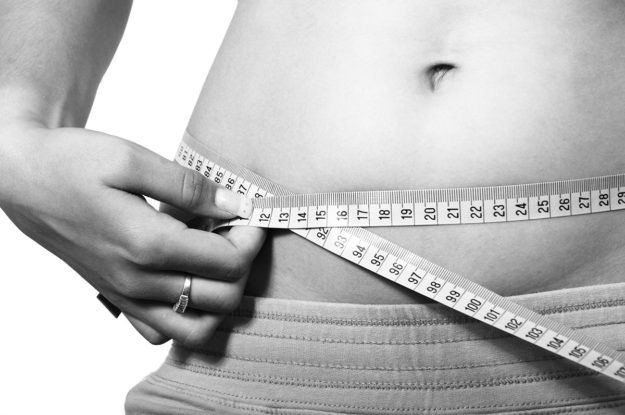SUNNY VITAMIN
In childhood, our mothers easily let us go out with peers in the yard, especially if it was sunny on the street. Thus, they killed two birds with one stone at once: first, they cut out for a little time while their mischievous people played on the street, and secondly, letting us go to the sun – our mothers knew that our body was better absorbed by vitamin D.
What is the benefit of this vitamin and what secrets does it contain in itself the assimilation and presence of this “solar vitamin” in the body?
I did not say that this vitamin is sunny, because the most accessible source of vitamin D is our yellow giant in the sky. According to the National Library of Health, staying in the sun for 10 to 15 minutes, three times a week, is enough to make up for your body’s vitamin D needs.
Under the term “vitamin D”, scientists have combined several biologically active substances – ferols, which participate in the most vital and key processes in the human body. Calciferol, ergocalciferol (D2), cholecalciferol (D3) are active participants in the metabolism and regulate the processes of assimilation of such necessary trace elements as calcium and phosphorus – that is the main benefit of vitamin D. How many people do not receive calcium or phosphorus, without the presence of vitamin D they They will not be absorbed by the body, as a result of which their deficit will only increase.
Useful properties of vitamin D.
Since calcium is one of the most common trace elements in the human body involved in the processes of mineralization of bones and teeth, in the work of the nervous system and is responsible for muscle contraction, the benefits of vitamin D, which helps to assimilate this trace element, are invaluable. In the course of the research, scientists proved the invaluable use of this trace element.
Dosage
The recommended daily dose of vitamin D is 200 IU for people under the age of 50, 400 IU for people aged 51 to 70, and 600 IU for people over 70 years. Nevertheless, according to a clinical study conducted by the American Journal of Clinical Nutrition, these recommended dosages may not be sufficient. The results of the study showed that 50% of adults needed 700-800 IU per day to maintain the optimal level of vitamin D.
The sources of this vitamin are: halibut liver (100,000 IU per 100 g), fat herring and cod liver (up to 1,500 IU), mackerel fillets (500 IU). Also, vitamin D is found in eggs, milk and dairy products, veal, parsley.
Vitamin D deficiency
Deficiency of this vitamin in the child’s body leads to the development of rickets and to deformation of the skeleton. Symptoms of a deficiency of calciferol in children can be such symptoms as: lethargy, intense sweating, increased emotional reaction (excessive fearfulness, tearfulness, unreasonable moods). In adults, the lack of vitamin D causes osteomalacia (a violation of the mineralization of bones), muscle tissue becomes flaccid, noticeably weaker.
With a deficiency of calciferol, the risk of osteoarthritis and osteoporosis is significantly increased, the bones become brittle, they break even with minor injuries, and fractures overgrow are very difficult and long-lasting. Recent scientific studies have also shown that if you lack this vitamin, you are at increased risk of developing cardiovascular diseases.
Benefit
A recent study in the Journal of the American Medical Association has shown that young people taking vitamin D in increased dosage have a lesser risk (by 51%) of the occurrence of multiple sclerosis (MS).
Vitamin D also has a strong inhibitory effect and slows the growth of cancer cells. Calciferol is now actively used in the framework of anticarcinogenic therapy.
According to an article published on January 30, 2008, in a journal on steroid biochemistry and molecular biology, people who took the recommended maximum dose of vitamin D as determined in the study (2000 IU) and had enough time in the sun, drastically reduced the likelihood of their occurrence breast cancer (in women) and colon cancer. However, this does not end the useful properties of vitamin D.
The use of vitamin D in the fight against such a complex and ambiguous disease as psoriasis is proved. The use of drugs that contain a certain form of vitamin D in combination with solar ultraviolet, can significantly reduce psoriatic symptoms, remove redness and flaky skin, reduce itching.
The benefits of vitamin D are especially relevant during the period of active growth and formation of bone tissue, so calciphyrol is administered to babies from birth. Together with other vitamins, it enhances the human immune system, and is a good preventative against colds. This vitamin is irreplaceable in the treatment of conjunctivitis.
In the presence of ergosterol in the skin, sun ergonic ultraviolet produces ergocalci-ferol in the skin. Therefore, it is so useful to sunbathe and take sunbathing. The most “productive” are the morning and evening sun rays, it is during these periods that the wavelength of ultra-violet is the most optimal and does not cause burns.
Vitamin D and diabetes. A clinical study conducted in 2014 confirmed that the optimal intake of vitamin D plays a crucial role in preventing the progression of the pre-diabetic state to diabetes in adults. Previous studies have shown that a reduced content (in the blood serum) of vitamin D, is directly related to insulin resistance, metabolic syndrome and type 2 diabetes.
Fibromyalgia has a significant impact on the quality of life of a person and can even lead to loss of work. This is a painful condition that leads to constant pain, fatigue, loss of sleep, a violation of concentration and depression. The intake of vitamin D also struggles with this painful condition.
In the world there is still no remedy for the treatment of Alzheimer’s disease, a progressive form of dementia characterized by short-term memory loss, confusion, irritability and mood swings, among other symptoms. Despite the lack of treatment for this neurodegenerative disease, recent evidence suggests a potential link between such a condition and low levels of vitamin D in the blood. For the elderly, vitamin D is crucial.
A new study showed that a low level of vitamin D in people over 55 years of age is due to the inability to perform routine tasks in everyday life.
Premenstrual syndrome is what almost 20 percent of women suffer each month. While the symptoms and manifestations of PMS may be different, the effect of taking vitamin D, positively affects and in this painful condition.
I’m sure, dear readers, that now you know more about this amazing and sunny vitamin.










